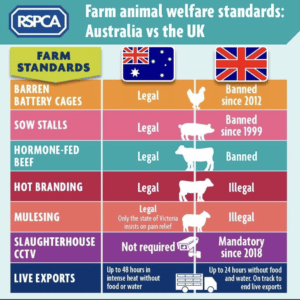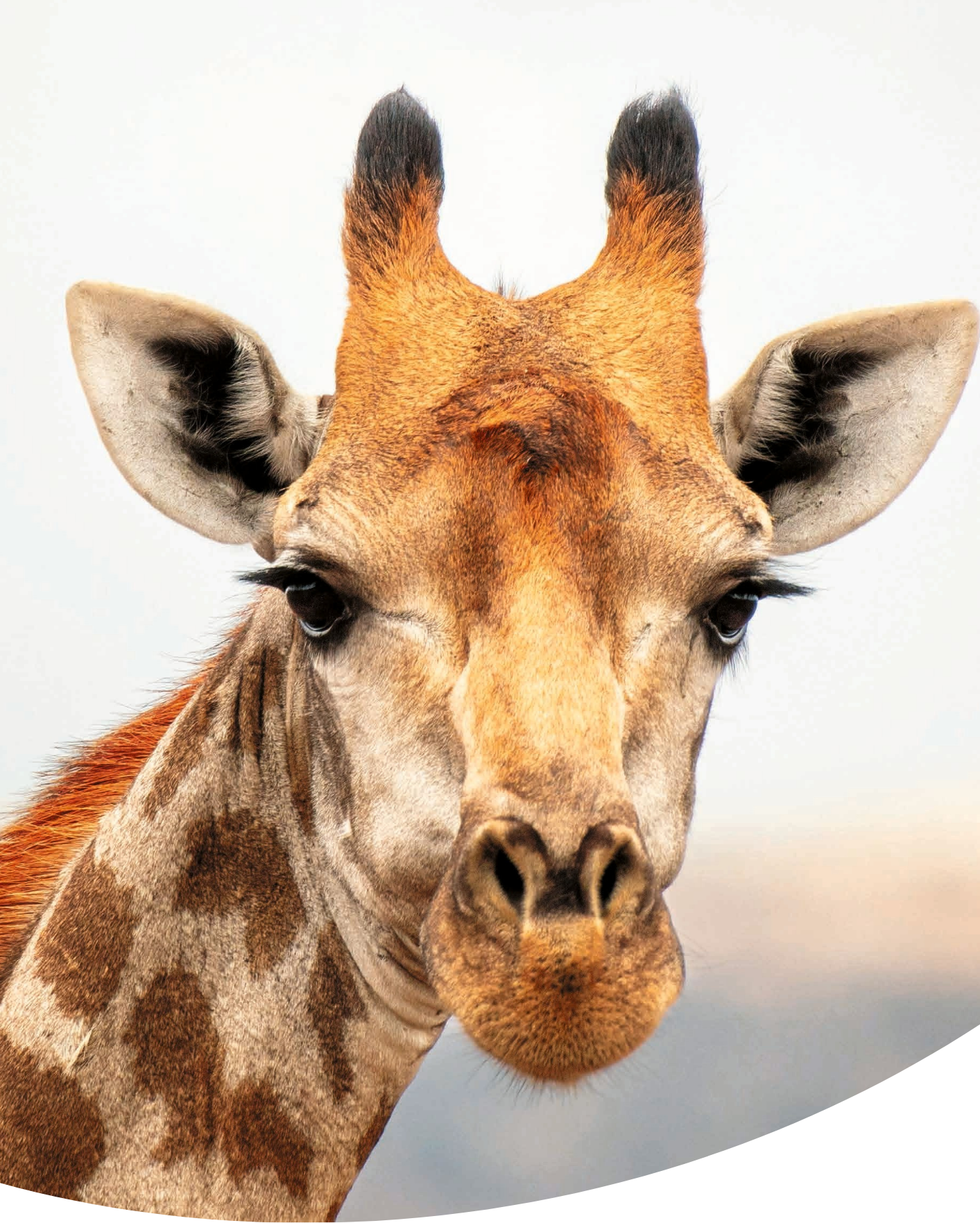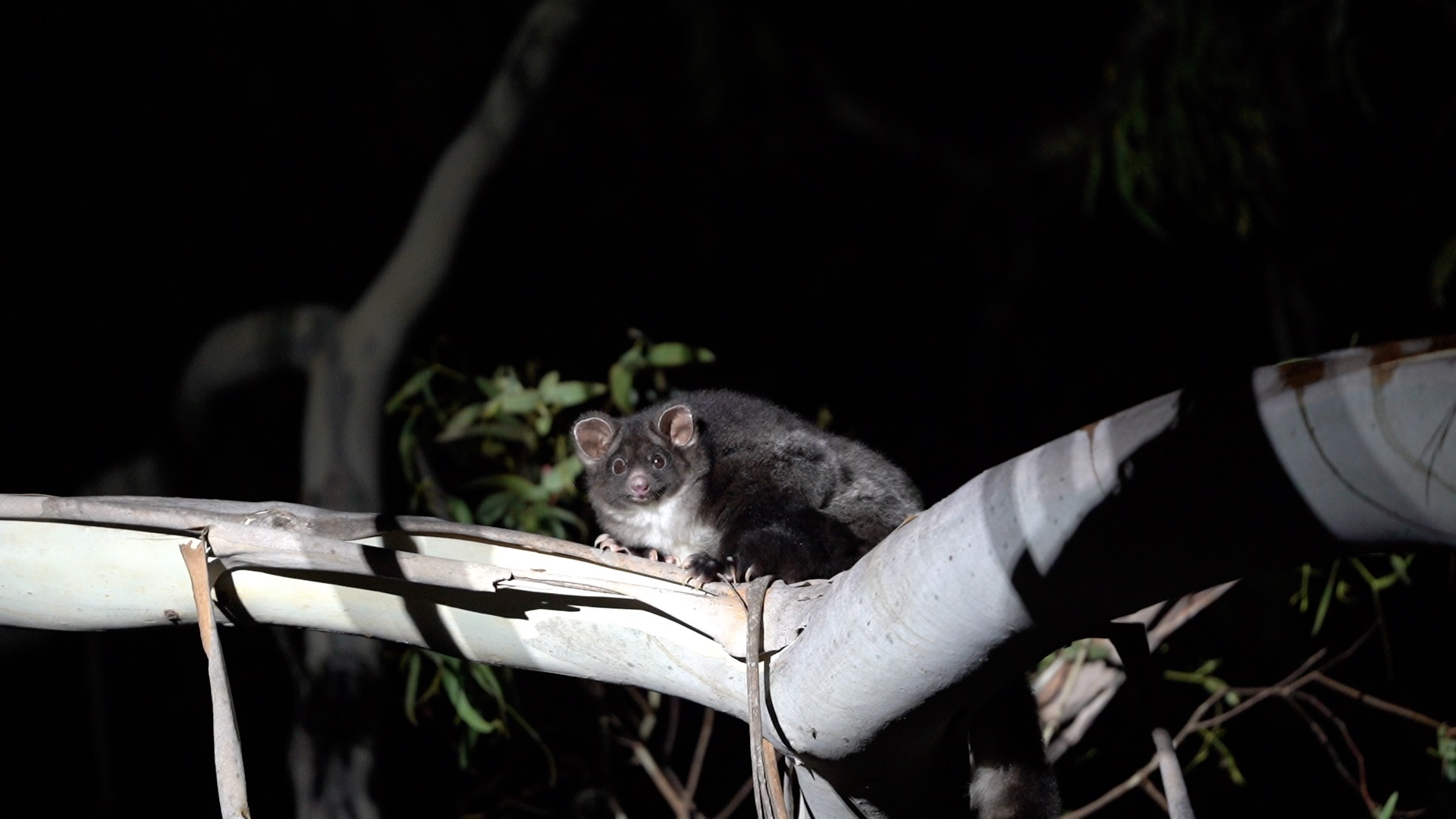Find out more about our work on federal environment reforms, the recent victory in protecting whale sharks, an update on our partner projects and lots more.
In a first for Australia, the free trade agreement signed today with the UK Government includes a chapter for animal welfare.
The chapter sees the Australian government formally recognise the ‘sentience’ of animals, an important principle increasingly adopted in modern animal welfare law. It also signs Australia up to a clear instruction to improve our animal welfare standards.
During the negotiations there was strong concern from UK industry and consumers over Australia’s lower standards, which still allow for cruel battery cages and unnecessary mutilations to animals such as mulesing conducted without pain relief.

Image source: RSPCA England & Wales
The Australia-UK FTA requires that “Each Party shall endeavour to ensure that its laws, regulations and policies provide for and encourage high levels of animal welfare protection and shall endeavour to continue to improve their respective levels of animal welfare protection, including through their laws, regulations and policies.”
Nicola Beynon, Head of Campaigns for the Australian office of Humane Society International states: “HSI Australia is pleased to see the Australian government sign up to an animal welfare chapter in the Australia-UK FTA. It marks the start of a process of improvement. The pressure is on Australia to raise our game to meet the animal welfare expectations of our UK trading partner.
As an example, the UK is a significant customer for Australian wool. Currently Australian standards allow a mutilation called mulesing to be undertaken on sheep, often without pain relief. It will be untenable for Australia to continue allowing mulesing if it is ensuring that its laws and regulations provide for high levels of animal welfare protection.”
HSI also welcomes the FTA’s recognition of the connection between improved welfare of farmed animals and sustainable food production systems. Animal agriculture is responsible for 14-16% of greenhouse gas emissions. FTAs should not be seen as a green light for increased farm animal production. Climate change pressures demand sustainable agriculture production systems and a transition to plant based proteins.


